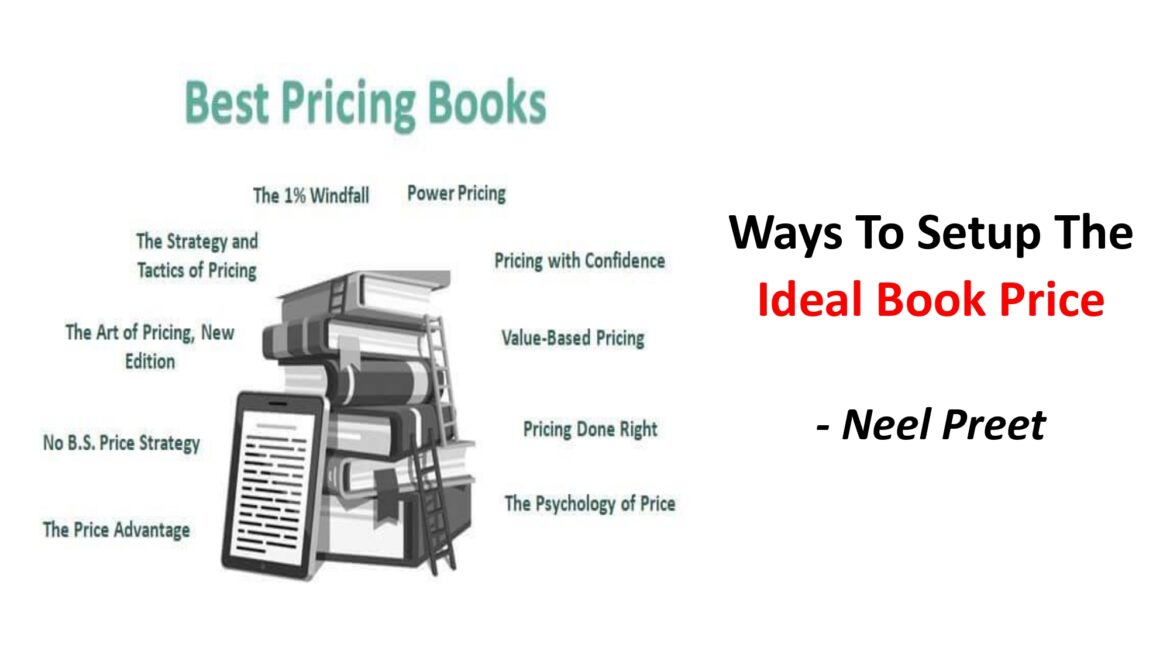The price setting of your book is a thing of major concern, which requires an accurate decision from your side. As, the selling price of your book is going to play a vital role in its sales. It is often observed that even some very good books fails terribly in the market due to their pricing; good books that are bit costly fails to generate a market for themselves. Of course, the basic formula of economics, which suggests that the higher the price, the lower the demand and vice versa is applicable in the book business too!
However, it is not always true that the good books fails only due to being costly. Interestingly, sometimes the reverse also happens and the good books, which are way too cheap from the point of price too fails. Well, the basic formula of economics gets defeated sometimes as the lower selling price sometimes creates an image of the book being an ordinary one, even when the book is awesome. In such a case, the hardcore readers and the book lovers, tends to believe that the book might be an ordinary one that is why it had such a low selling price.
Therefore, if you are an author and you think that just by lowering the selling price of your book, you can create a great sales flow then you are definitely wrong. The lower price does not always guarantee a greater volume of sales. Finding the sweet spot for the price of your book is tricky, so here in this write-up, I will share some tips on how you can determine the price that will optimize your sales, attract more readers and boost your bottom line. Well, the tips for setting up the Ideal Book Price are as follows –
1st Tip) Consider Your Current Catalogue & Fan Base: Sure, there are plenty of bestsellers by indie authors that are priced at a higher range, but if you look at the authors, you will see that they can truly command such high prices because they have a strong following of hungry readers. In most cases, they usually have a vast catalogue of available titles, too.
If you have a big fan base, go ahead and experiment with some higher prices for newer releases. However, if you are new to self-publishing and/or have just one or two titles to sell, it is much more important to build a following, which means setting the price low! Otherwise, you may alienate readers who would otherwise be eager to give you a chance at a lower price!
2nd Tip) Consider Book Length: When a reader buys your book, it represents an investment of much more than the amount spend by them. They are not just the spending of money on your title; they are preparing to spend considerable time in the world that you have created in that book of yours.
Therefore, if your book is a breezy page-turner with comparatively less pages (30,000-50,000 words); the readers might not feel like it is a good investment at a higher price. In most cases, shorter books should be priced lower and longer books should be priced higher!
3rd Tip) Perform Market Research: If you want to make it as an indie author, you have got to know where you stand in the marketplace. That means analysing what other writers in your genre are doing and how they are pricing their books. Therefore, it is advisable to search Amazon for authors who are similar to you and who have a comparable output. This will give you a solid sense of what readers are willing to pay!
4th Tip) Don’t Just Set it And Forget It: When you consider the ideal price for your book, remember that strategic promotions and price cuts can really boost your sales. People love promotions, and a great way to drum up interest in your book is to slash the price for a limited time. If you are selling your book on Amazon through KDP Select, you can take advantage of Kindle Countdown Deals, which is a wonderful way to increase exposure and build excitement around your title!
Written By NEEL PREET – Author of the Books, Voice From The East (2016); Journey With Time Place And Circumstances (2018) & Indian Defence Files (2021).



